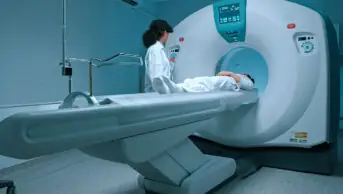
Shutterstock.com
Oral antibiotic use is linked to an increased risk of colon cancer, but a reduced risk of rectal cancer, a study published in Gut suggests (7 October 2019)[1]
.
Researchers took UK GP data from 1989 to 2012 on 28,980 patients with colorectal cancer and matched each to up to five controls (n=137,077).
During a median follow-up of 8.1 years, a greater proportion of people with colorectal cancer had been prescribed antibiotics than controls (70.0% versus 68.5%).
A dose-dependent relationship was found between antibiotic use and increased risk of colon cancer. The risk was greatest in the proximal colon and with the use of anti-anaerobic antibiotics.
In contrast, the risk of rectal cancer was reduced with prolonged exposure to antibiotics (>60 days) and with tetracycline use, in particular.
Disturbances to the gut microbiome are thought to be partly responsible for predisposing individuals to colorectal cancer, but detail on risk patterns is lacking.
The researchers said the findings indicated that the relationship between colorectal cancer and antibiotics may be mediated by different mechanisms along the digestive tract.
“This study will spur future studies of the microbes and mechanisms contributing to antibiotic–microbiome cancer risk, and development of approaches to intervene and mitigate the effects,” they concluded.
References
[1] Zhang J, Haines C, Watson A et al. Oral antibiotic use and risk of colorectal cancer in the United Kingdom, 1989–2012: a matched case–control study. Gut 2019;68:1971–1978. doi: 10.1136/gutjnl-2019-318593


